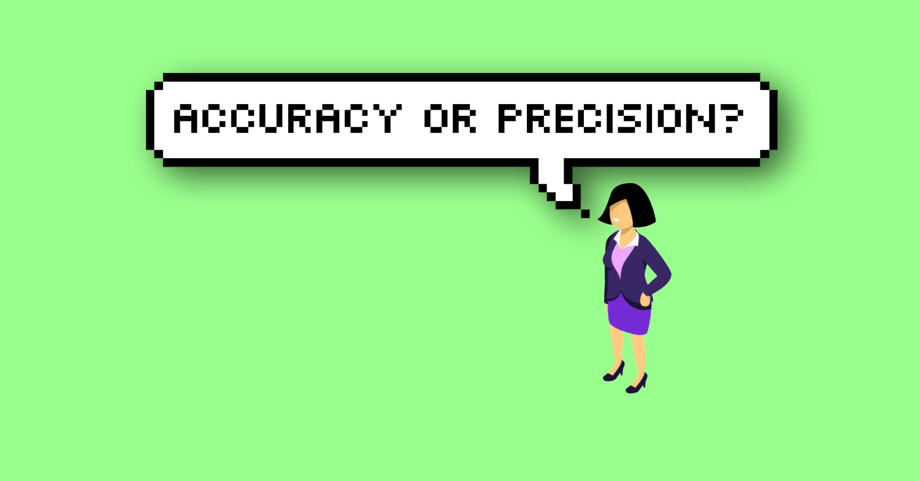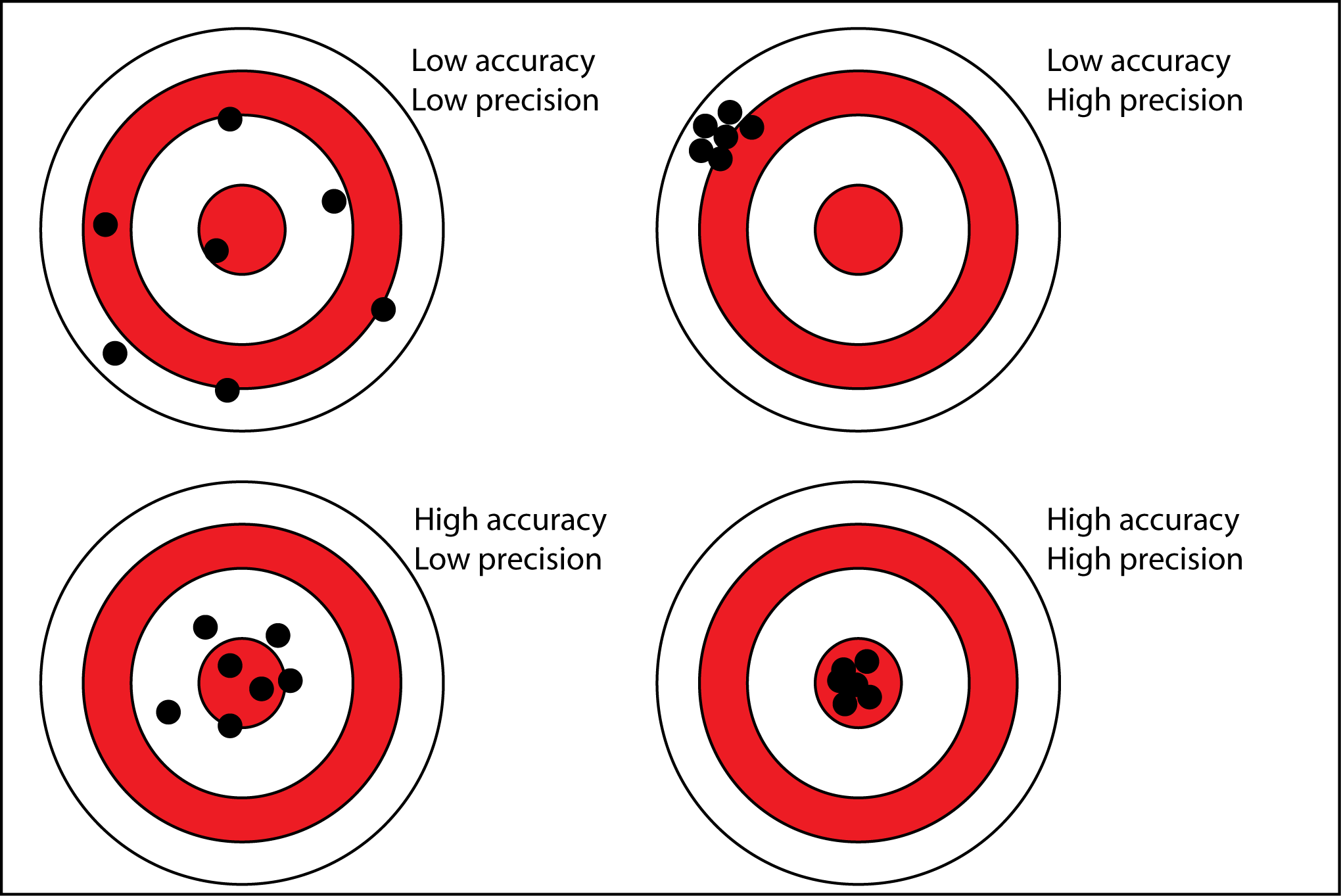What is the Difference Between Accuracy and Precision?

In Summary: Accuracy is the degree of closeness to true value. Precision is the degree to which an instrument or process will repeat the same value. In other words, accuracy is the degree of veracity while precision is the degree of reproducibility.
What's the difference between accuracy and precision?
When scoping a project, you want to be as close to the actual workload as possible. Defining the scope means that you and your client are figuring out and documenting a list of specific project goals. That could be features, functionalities, deliverables, deadlines, and ultimately costs of the project. Project scope helps with resource planning and time management of the project. Accuracy and precision are used in the context of measurement, e.g., the size of a project and therefore are both helpful when defining the scoping.
Accuracy and precision are alike only in the fact that they both refer to the quality of measurement, but they are very different indicators of measurement.
 Source: https://www.antarcticglaciers.org/glacial-geology/dating-glacial-sediments-2/precision-and-accuracy-glacial-geology/
Source: https://www.antarcticglaciers.org/glacial-geology/dating-glacial-sediments-2/precision-and-accuracy-glacial-geology/What does accuracy mean?
If a measurement is accurate, it means that it agrees closely with the accepted standard for that measurement. For example, if we estimate a project's size to x and the actual size of the finished project is equal to or very close to x, then it is accurate, but it might not be precise. The closer a system's measurements to the accepted value, the more accurate the system is considered to be.
Humans make errors all the time, but if you're using a project management software to help you scope, you will begin to have a more accurate project measurement and refined process.
What does precision mean?
A measurement that is precise means that it agrees with other measures of the same thing. In the sense of project scoping, let's take an estimation of workload as an example. If we estimate the size of several projects and they, in the end, are all close to or equal to what we predicted, then we can start to get a sense of the precision of our estimates. But first and foremost, each project needs to be as accurate as possible.
How the two terms relate
Accuracy can be determined by one measurement while many measurements are needed to assess precision. For instance, by looking at the image above, just by one bullet fired, one knows if it is accurate or not, but a number of attempts have to be fired to tell if the result is precise. Bullets that hit closer to the bullseye are considered more accurate. If a large number of bullets are fired, precision would be the size of the bullet cluster and not how close they are to the bullseye.
In short, we can say that we want all our estimates to hit the target first (be accurate to within a certain limit), and then we can concentrate on the precision afterward. The more you work with a specific client, execute on individual projects, and have well defined the tasks, the more precise your scope becomes. In this sense, it is a goal to strive to achieve accuracy as soon as possible, and over time develop precision to scoping your projects.
You might like to read these articles on our blog..

Unleashing Operational Excellence: A Strategic Imperative for Professional Services Leaders.
Read moreFrom Vision to Execution: How Operational Excellence Drives Success in Professional Services
Read moreMaster Project Budget Management with Professional Services Automation
Read moreSubscribe to the Forecast Newsletter
Get a monthly roundup of productivity tips & hacks delivered straight to your inbox
